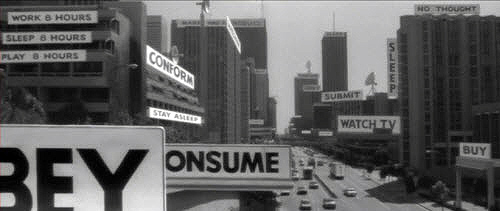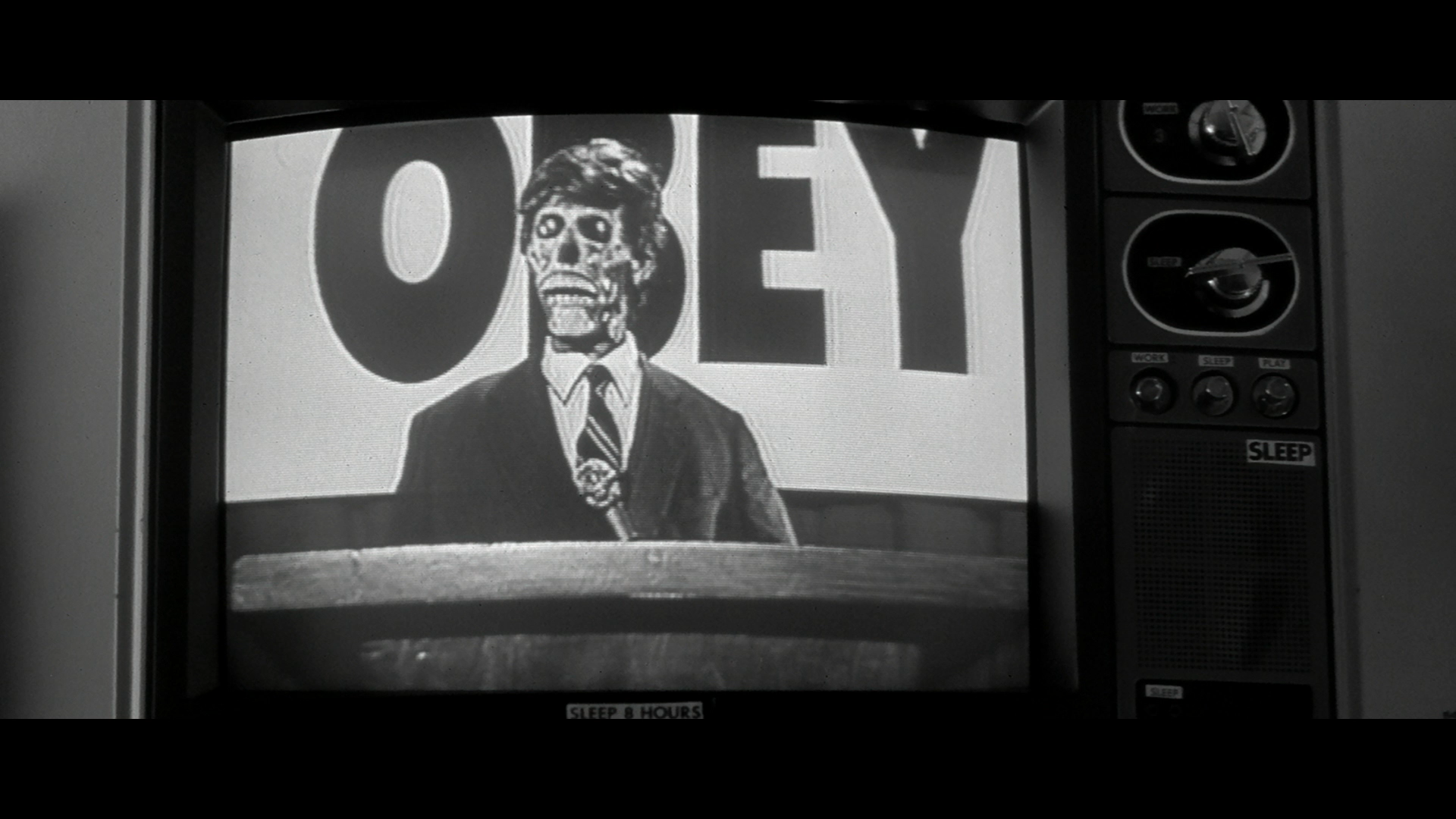It looks like you're using an Ad Blocker.
Please white-list or disable AboveTopSecret.com in your ad-blocking tool.
Thank you.
Some features of ATS will be disabled while you continue to use an ad-blocker.
share:
I've spent some time in the past discussing the issue with intellectual property, and the fact that none of us really creates anything original
anymore. An example i've used is a young painter, sitting at the window of his flat painting an image of the cityscape outside. Several years go
by, and he becomes a rather big to do. Eventually he sells some of his cityscape images for 7 figures each, and then is sued by several corporations
for copyright infringement. The cityscape happens to be full of billboards, and the image that was a large Nike billboard looming over a homeless man
who slept underneath it and used to play basketball for UNLV is deemed to violate the copyright of Nike. Nevermind the deeper meaning of the image
when the story is taken into it.
The below article discusses advertising from a different angle: the videoscreens we are seeing pop up everywhere, blaring ads at us. 'Additech" fuel additives at the pump, colon health products in the doctors office, ads for premium park services while in line at Six Flags....they are absolutely everywhere, and growing. The Black Mirror has an episode that deals with this ever present advertising, and its rather chilling.
www.wired.com...
I would further assert that public advertising, in general, is an assault on my attention. On my mental faculties. The beautiful vistas of the Texas roadways are pockmarked with ads for Holiday Inn Express and their carboard cinnamon rolls at the next right. And adding insult to injury, this intrusion on my natural landscape is copyrighted. The world around me, that I am forced to live within (and pay taxes in support of) is trademarked so that I may not duplicate its image.
What about my freedom of thought? Why should my memories be filled with copyrighted imagery without my consent? Its not like im flipping through a magazine, or watching TV. Its everywhere outside dominating the vistas of my natural landscape.
Anyway, interesting article that gave me a soapbox from which to rant.
The below article discusses advertising from a different angle: the videoscreens we are seeing pop up everywhere, blaring ads at us. 'Additech" fuel additives at the pump, colon health products in the doctors office, ads for premium park services while in line at Six Flags....they are absolutely everywhere, and growing. The Black Mirror has an episode that deals with this ever present advertising, and its rather chilling.
www.wired.com...
Attention theft happens anywhere you find your time and attention taken without consent. The most egregious examples are found where, like at the gas station, we are captive audiences. In that genre are things like the new, targeted advertising screens found in hospital waiting rooms (broadcasting things like “The Newborn Channel” for expecting parents); the airlines that play full-volume advertising from a screen right in front of your face; the advertising-screens in office elevators; or that universally unloved invention known as “Taxi TV.” These are just few examples in what is a growing category. Combined, they threaten to make us live life in a screen-lined cocoon, yet one that leaves us more like larva than butterflies, shrunken and incapable of independent thought.
What makes it “theft?” Advances in neuroscience over the last several decades make it clear that our brain’s resources are involuntarily triggered by sound and motion; hence the screens literally seize scarce mental resources. As neuroscientist Adam Gazzaley and psychologist Larry Rosen put it in their book, The Distracted Mind, humans have an “extreme sensitivity to goal interference from distractions by irrelevant information.” Meanwhile, in the law, theft or larceny is typically defined as the taking control of a resource “under such circumstances as to acquire the major portion of its economic value or benefit.” Given the established market value of time and attention, when taken without consent or compensation, it really is not much different from someone taking money out of your pocket. Hence, when the firms selling public-screen advertising to captive audiences brag of double-digit growth and billions in revenue, those are actually earnings derived by stealing from us.
As suggested, the key word here is “consent.” There’s a big difference between leafing through a magazine, reading articles and advertising by choice, and being blasted at by a screen when you have no place to go. Indeed, consent is the usual way access to the body is conditioned. The brain is a pretty intimate part of your body, from which it follows that your permission ought be asked before having your synapses groped by a stranger.
I would further assert that public advertising, in general, is an assault on my attention. On my mental faculties. The beautiful vistas of the Texas roadways are pockmarked with ads for Holiday Inn Express and their carboard cinnamon rolls at the next right. And adding insult to injury, this intrusion on my natural landscape is copyrighted. The world around me, that I am forced to live within (and pay taxes in support of) is trademarked so that I may not duplicate its image.
What about my freedom of thought? Why should my memories be filled with copyrighted imagery without my consent? Its not like im flipping through a magazine, or watching TV. Its everywhere outside dominating the vistas of my natural landscape.
Anyway, interesting article that gave me a soapbox from which to rant.
a reply to: bigfatfurrytexan
This Futurama episode shows you your future with advertising:
www.dailymotion.com...
"What a weird dream"
This Futurama episode shows you your future with advertising:
www.dailymotion.com...
"What a weird dream"
a reply to: bigfatfurrytexan
The amount of advertising esp. on TV is getting sickening. I have to turn off the TV half the time as I'm tired of seeing the same ads over and over.
The amount of advertising esp. on TV is getting sickening. I have to turn off the TV half the time as I'm tired of seeing the same ads over and over.
Bu-bu-but..... 'Murika the greatest nation.... free market bluh blah.... damn commie pigs.... muh gunz.... support our troops.... 0bama, Barack
Hussein Obummer... Moslims Islam turrurists buh blah.... f*ck me in the @ss my corporate masters... praise Jesus.... muh beer and muh high fructose
corn syrup snacks....
Cmon man..... the insensible mind-slaves like to be intruded upon.... its pleasant for them, like cows like to have their utters squeezed. The subhuman masses wouldn't know what to do with themselves if, god forbid, they were left alone with their thoughts for 10 minutes. The problem is that they have no thoughts; at least no thoughts of their own.
Let's see what the usual suspects have to say about this....
Oh yeah and I almost forgot.... scientists and neurologists are liberal traitors who hate America. F*ck science....
Cmon man..... the insensible mind-slaves like to be intruded upon.... its pleasant for them, like cows like to have their utters squeezed. The subhuman masses wouldn't know what to do with themselves if, god forbid, they were left alone with their thoughts for 10 minutes. The problem is that they have no thoughts; at least no thoughts of their own.
Let's see what the usual suspects have to say about this....
Oh yeah and I almost forgot.... scientists and neurologists are liberal traitors who hate America. F*ck science....
edit on 15-4-2017 by
Talorc because: (no reason given)
Good topic. I have a deepseated irritation and distrust for the vast majority of advertisements. Most are very deceitful, and almost always come with
fine print or a catch.
a reply to: knowledgehunter0986
I wish they would do a remake of this movie... without Roddy Piper though lol.
I wish they would do a remake of this movie... without Roddy Piper though lol.
originally posted by: LookingForABetterLife
a reply to: bigfatfurrytexan
The amount of advertising esp. on TV is getting sickening. I have to turn off the TV half the time as I'm tired of seeing the same ads over and over.
Ads are literally the reason I refuse to watch tv. I don't understand how anyone can sit through a tv show when it pauses every 6 minutes for several minutes of advertisements.
So, you copyright a sign and then stick it out into the public so people look at it. Then it is illegal to take a picture of it as you drive by? I
think we have something wrong with our laws, if it is put out in public for people to see, they should be able to draw it or photograph it. We need
to change our laws. This is getting ridiculous.
a reply to: bigfatfurrytexan
I literally cant watch or listen to commercials/advertisements.
Theyre almost as bad as TV shows and news when it comes to agendas and brainwashing.
I literally cant watch or listen to commercials/advertisements.
Theyre almost as bad as TV shows and news when it comes to agendas and brainwashing.
I'm just going to leave this here.
youtu.be...
What? No, I didn't drop that. Never saw it before in my life. Someone else must have left this link just sitting here. Weird. Lol
youtu.be...
What? No, I didn't drop that. Never saw it before in my life. Someone else must have left this link just sitting here. Weird. Lol
a reply to: bigfatfurrytexan
While I agree with the sentiment, I'm not sure where you are trying to place the blame. If there is a billboard blocking your view of the natural scenery it is because the person who owns that property decided to make some money and sell the space. Towns and cities routinely regulate this activity.
TV ads are at an all-time high, which is insane because they are easily avoided. I rarely watch live tv. Even when watching a Patriots' game, I start watching 45 minutes late and that way can skip through the ads.
Avenues of redress are to go to your next town meeting and/or complain to the different companies involved (sign company, advertising company, company the ad is for, etc..). Lastly, boycott the companies that advertise in a manner offensive to you.
What else is there to do? Criminalize advertising?
While I agree with the sentiment, I'm not sure where you are trying to place the blame. If there is a billboard blocking your view of the natural scenery it is because the person who owns that property decided to make some money and sell the space. Towns and cities routinely regulate this activity.
TV ads are at an all-time high, which is insane because they are easily avoided. I rarely watch live tv. Even when watching a Patriots' game, I start watching 45 minutes late and that way can skip through the ads.
Avenues of redress are to go to your next town meeting and/or complain to the different companies involved (sign company, advertising company, company the ad is for, etc..). Lastly, boycott the companies that advertise in a manner offensive to you.
What else is there to do? Criminalize advertising?
a reply to: TobyFlenderson
Overhaul "intellectual property" laws? Why should a corporation get to purchase and trademark a portion of my skyline?
Overhaul "intellectual property" laws? Why should a corporation get to purchase and trademark a portion of my skyline?
a reply to: bigfatfurrytexan
It all drives me crazy. Anytime I see a down to earth positive non sheeple commercial I vow to use the product. I have a ban list just do to company views and commercial that are made for the capitalistic mind control and narrative pushing stuff.
It all drives me crazy. Anytime I see a down to earth positive non sheeple commercial I vow to use the product. I have a ban list just do to company views and commercial that are made for the capitalistic mind control and narrative pushing stuff.
originally posted by: rickymouse
So, you copyright a sign and then stick it out into the public so people look at it. Then it is illegal to take a picture of it as you drive by? I think we have something wrong with our laws, if it is put out in public for people to see, they should be able to draw it or photograph it. We need to change our laws. This is getting ridiculous.
Did you know it's illegal to take pictures of the Eiffel Tower at night for the same reasons? Absolutely ridiculous law.
www.dailymail.co.uk... LEGAL.html
I'd love to be able to go anywhere without being inundated with ads. Going totally off the grid is about the only possible way to avoid it. Pfeh.
When watching TV, I usually buffer 25 mins then watch to FF commercials or just record them for later.
Now.. I notice when I HAVE to watch live, and commercials come on, I blank out, thinking of what I'll do later, or what-not. I don't 'see' or remember the commercial. To ME, they are just an annoyance and waste of time.
My wife though, will later hum the tune from a commercial, and I'm like.. DON'T LET them get you!
And those DAMN banners that pop up DURING shows --those are bad.. I focus on the show, making sure not to watch them.. This is why I hate watching ANY live news channels.. all the commercials are about pills/suing for bad pills, and tons of old demo stuff I don't need. I SEE that and just have to switch off. not worth wasting brain cells on that data.
This is why I joined the internet in 94.... way before most I know. and with YouTube--GOOD YouTube channels--it's really nice.
Now.. I notice when I HAVE to watch live, and commercials come on, I blank out, thinking of what I'll do later, or what-not. I don't 'see' or remember the commercial. To ME, they are just an annoyance and waste of time.
My wife though, will later hum the tune from a commercial, and I'm like.. DON'T LET them get you!
And those DAMN banners that pop up DURING shows --those are bad.. I focus on the show, making sure not to watch them.. This is why I hate watching ANY live news channels.. all the commercials are about pills/suing for bad pills, and tons of old demo stuff I don't need. I SEE that and just have to switch off. not worth wasting brain cells on that data.
This is why I joined the internet in 94.... way before most I know. and with YouTube--GOOD YouTube channels--it's really nice.
new topics
-
Dick Van Dyke saved from Wildfire by neighbours on his 99th birthday
People: 1 hours ago
top topics
-
Marvin Gabrion's sentence commuted by Biden
US Political Madness: 17 hours ago, 14 flags -
London Christmas Market BANS Word ‘Christmas’
Social Issues and Civil Unrest: 17 hours ago, 13 flags -
1 Billion dollars
General Entertainment: 15 hours ago, 6 flags -
Dick Van Dyke saved from Wildfire by neighbours on his 99th birthday
People: 1 hours ago, 1 flags
active topics
-
London Christmas Market BANS Word ‘Christmas’
Social Issues and Civil Unrest • 36 • : SprocketUK -
Trump says ownership of Greenland 'is an absolute necessity'
Other Current Events • 39 • : Dalamax -
Dick Van Dyke saved from Wildfire by neighbours on his 99th birthday
People • 0 • : gortex -
RIP Merrily Harpur British Big Cat Realist
Cryptozoology • 4 • : TimBurr -
Statements of Intent from Incoming Trump Administration Members - 2025 to 2029.
2024 Elections • 51 • : WeMustCare -
JILL BIDEN Wants JOE to Punish Democrats Who Forced Him to Leave Office in Disgrace on 1.20.2025.
2024 Elections • 15 • : Electriccowboy -
Christmas Dinner ??
Food and Cooking • 15 • : Mantiss2021 -
U.S. Govt Agencies That Protect Criminals in Government - National Archives Records Admin-NARA.
Political Conspiracies • 9 • : 777Vader -
NYPD arrests migrant who allegedly set woman on fire on subway train, watched her burn to death
Breaking Alternative News • 51 • : QET0110 -
Merry Christmas !!
General Chit Chat • 17 • : rickymouse



